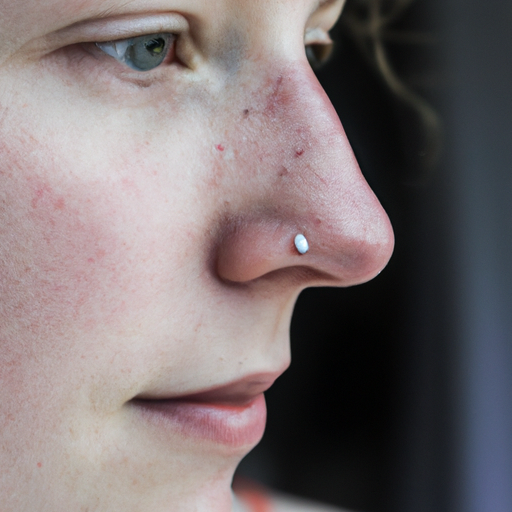Title: Unmasking Acne: Your Comprehensive Guide to Understanding and Overcoming Skin Breakouts
As a dermatologist, I encounter a myriad of skin conditions daily, but one of the most common is acne. This pesky skin condition affects millions of people worldwide, causing not only physical discomfort but also emotional distress due to its impact on appearance. In this article, we will unmask acne, providing you with a comprehensive guide to understanding and overcoming skin breakouts.
Acne is a skin condition that occurs when your hair follicles become clogged with oil and dead skin cells. It often causes whiteheads, blackheads, or pimples, and typically appears on the face, forehead, chest, upper back, and shoulders. Acne is most common among teenagers, though it affects people of all ages.
There are several types of acne, including inflammatory acne (papules, pustules, nodules, and cysts) and non-inflammatory acne (whiteheads and blackheads). Understanding the type of acne you have is crucial in determining the most effective treatment approach.
Several factors can trigger or worsen acne. These include hormonal changes, certain medications, diet, stress, and poor skincare habits. Hormonal changes during puberty or pregnancy often cause an increase in oil production, leading to acne. Certain medications like corticosteroids, testosterone or lithium can also trigger breakouts. Diets high in refined sugars or carbohydrates may worsen acne. Stress doesn’t cause acne but can exacerbate it. Lastly, not removing makeup properly or using greasy cosmetics can block your skin’s pores causing breakouts.
Now that we’ve unmasked what acne is and what causes it, let’s delve into how you can overcome it. The first step in managing acne is maintaining a consistent skincare routine. This includes cleansing your face twice daily with a gentle cleanser, using an oil-free moisturizer, and applying a sunscreen during the day.
Over-the-counter treatments can also be effective in managing mild acne. These products contain ingredients like salicylic acid, benzoyl peroxide, and sulfur, which help to reduce oil production, speed up skin cell turnover, fight bacterial infection, and reduce inflammation.
If over-the-counter treatments aren’t effective, it may be time to consult a dermatologist. Prescription medications like topical retinoids, oral antibiotics, or even hormonal therapies may be recommended. In severe cases, a powerful medication called isotretinoin may be used.
In addition to medical treatments, lifestyle modifications can also help manage acne. These include maintaining a healthy diet, managing stress through practices like yoga or meditation, and getting regular exercise.
Finally, it’s crucial to resist the urge to pop or squeeze pimples as this can lead to scarring or skin infections.
In conclusion, while acne can be a frustrating condition to deal with, understanding its causes and knowing how to manage it effectively can significantly reduce its impact on your life. Remember that everyone’s skin is different, and what works for one person may not work for another. Therefore, it’s essential to consult with a dermatologist to develop a personalized treatment plan.
As a dermatologist, I can assure you that acne is treatable and manageable. With the right knowledge and approach, you can overcome skin breakouts and achieve healthier, clearer skin.
Keywords: Acne, Skin Breakouts, Dermatologist, Skincare Routine, Over-the-counter Treatments, Prescription Medications, Lifestyle Modifications.



